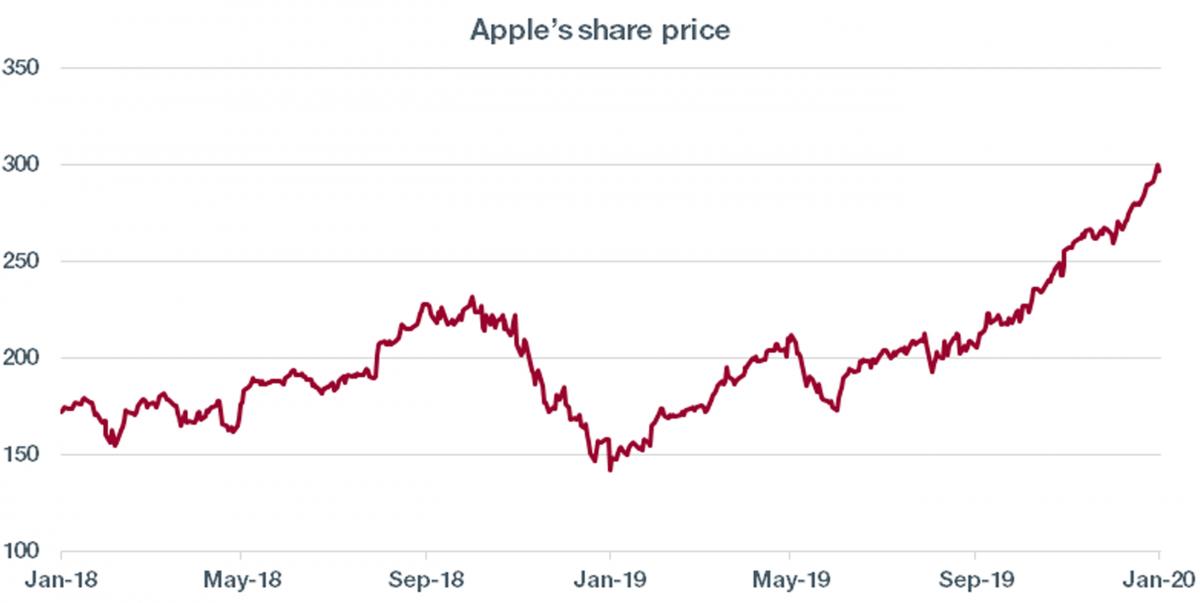06/01/2020
Flash boursier
Key data
| USD/CHF | EUR/CHF | SMI | EURO STOXX 50 | DAX 30 | CAC 40 | FTSE 100 | S&P 500 | NASDAQ | NIKKEI | MSCI Emerging MArkets | |
|---|---|---|---|---|---|---|---|---|---|---|---|
| Latest | 0.97 | 1.09 | 10'699.82 | 3'773.37 | 13'219.14 | 6'044.16 | 7'622.40 | 3'234.85 | 9'020.77 | 23'656.62 | 1'123.87 |
| Trend | |||||||||||
| %YTD | 0.65% | -0.04% | 0.78% | 0.75% | -0.23% | 1.11% | 1.06% | 0.13% | 0.54% | 0.00% | 0.83% |
Highlights:
Assassination of General Soleimani knocks markets off balance
USD giving up ground
Trump spoils the party
Until last Friday, markets had picked up where they had left off in 2019, continuing to appreciate after most indices had set new records in the previous weeks. Then Mr Trump stepped in, wrong-footing investors on Friday by ordering the assassination of General Soleimani, one of Iran’s most influential leaders. He was killed by a US drone strike while travelling around Bagdad. That left markets out in the open. Congress only heard about the news after it happened.
Those concerned and critical of the drone strike have drawn attention to the unsure consequences from this point onwards. So far, the rationale broadcast by the White House has mostly failed to convince. There will doubtless be some kind of response. And it’s hard to foretell the impact on the Middle East – a region already brought to its knees by wars in Syria and Yemen.
For now markets have merely sagged. Investors will price the actual risk of the conflict depending on the scale of the – inevitable – reprisals. Meanwhile the price of crude has shot up by over 6% since the news broke. The good news for President Rouhani, however, is that this assassination will shore up support around the central government after recent increases in fuel prices stoked opposition throughout the country.
On the currency front, the US dollar has been slipping in recent months ahead of 2020: the year of the presidential election. The Democrat nomination is still an open contest, and doubts about who will be going up against President Trump are weakening the buck, simply because investors are concerned of the future candidate’s stance on key issues that were the campaign pledges of the sitting president: namely lower corporate taxes, looser financial regulation and more government borrowing.
The huge US deficit, weighing in at 4.7% of GDP in spite of economic growth, is likely to continue dampening the dollar, which has struggled to recover despite this latest resurgence in geopolitical tensions.
Apple (ISIN: US0378331005, price: USD 297.43)
In 2019, Apple was the biggest gainer of the Dow Jones Industrial Average, putting on a whopping 86%. On 2 January 2020, one year to the day after the share’s plunge below USD 150 in the wake of a revenue warning, the share broke past USD 300, a sign of the company’s indubitable return to form.
With its massive user base, Apple is aiming to generate recurring revenue streams in high-margin services such as iCloud storage subscriptions, Apple TV video streaming and Apple Music. In addition, sales of recent models (iPhones 11, 11 Pro and XR) and take-up of AirPods have been stronger than expected. Upcoming 5G technology is furthermore likely to drive demand for a new generation of compatible iPhones. And with services also starting to pull their weight, this suggests continued revenue growth for Apple, which starts 2020 in a strong position.
At more than 22x estimated 2020 earnings, however, the stock’s valuation is becoming less tantalising. This represents a major change relative to previous years, when fears of a slowdown in sales combined with a lack of product innovation had pinned down the price/earnings ratio below the market average.


 Flash boursier
Flash boursier
